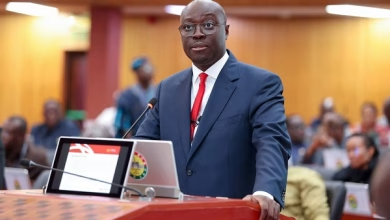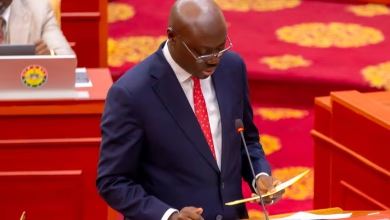Ghana Holds Rates to Tame Inflation, Eyes Fiscal Consolidation and Currency Boost

- Analysts see this as a strategic approach
- This will navigate a challenging environment
- Ghana's path to economic stability hinges
Ghana’s central bank opted to maintain its key interest rate at 29%, a cautious move aimed at curbing inflation amidst currency depreciation, utility price hikes, and rising fuel costs. Analysts see this as a strategic approach to navigate a challenging economic environment.
Balancing Inflation and Growth: Karen Judy Kwarteng, Head of Global Market Sales at Stanbic Bank Ghana, explained the decision in a CNBC Africa interview.
While an earlier rate cut aimed to stimulate growth, holding the rate is now seen as crucial to moderate inflation and support disinflation efforts.
The Bank of Ghana targets an inflation rate between 13% and 17% by year-end, aligning with the government’s goal of 15%.
Fiscal Consolidation: A Crucial Partner: Kwarteng emphasized the importance of sound fiscal policy alongside monetary measures. Increasing government revenue and reducing spending are key to mitigating inflationary pressures. Initiatives like the Ghana.gov platform and the Ghana Integrated Financial Management Information System are seen as instrumental in achieving this.
Cautious Optimism on the Cedi: Kwarteng expressed optimism about the Ghanaian cedi (currency) appreciating in the near future.
This is attributed to the successful restructuring of the €13.1 billion eurobonds and anticipated International Monetary Fund (IMF) disbursements in November. Challenges like declining cocoa earnings, which limit the central bank’s ability to intervene in the forex market, still persist.
Resilient Banking Sector: Despite high lending rates due to elevated reference rates, Kwarteng commended the resilience of Ghana’s banking sector.
The domestic debt restructuring program and support from regulatory bodies have enabled banks to navigate this environment effectively.
Collaboration for a Sustainable Future: Ghana’s path to economic stability hinges on collaboration between monetary and fiscal authorities.
The focus lies on fiscal consolidation, prudent financial management, and strategic monetary policy. These efforts aim to overcome current challenges and pave the way for a more resilient and sustainable future.






